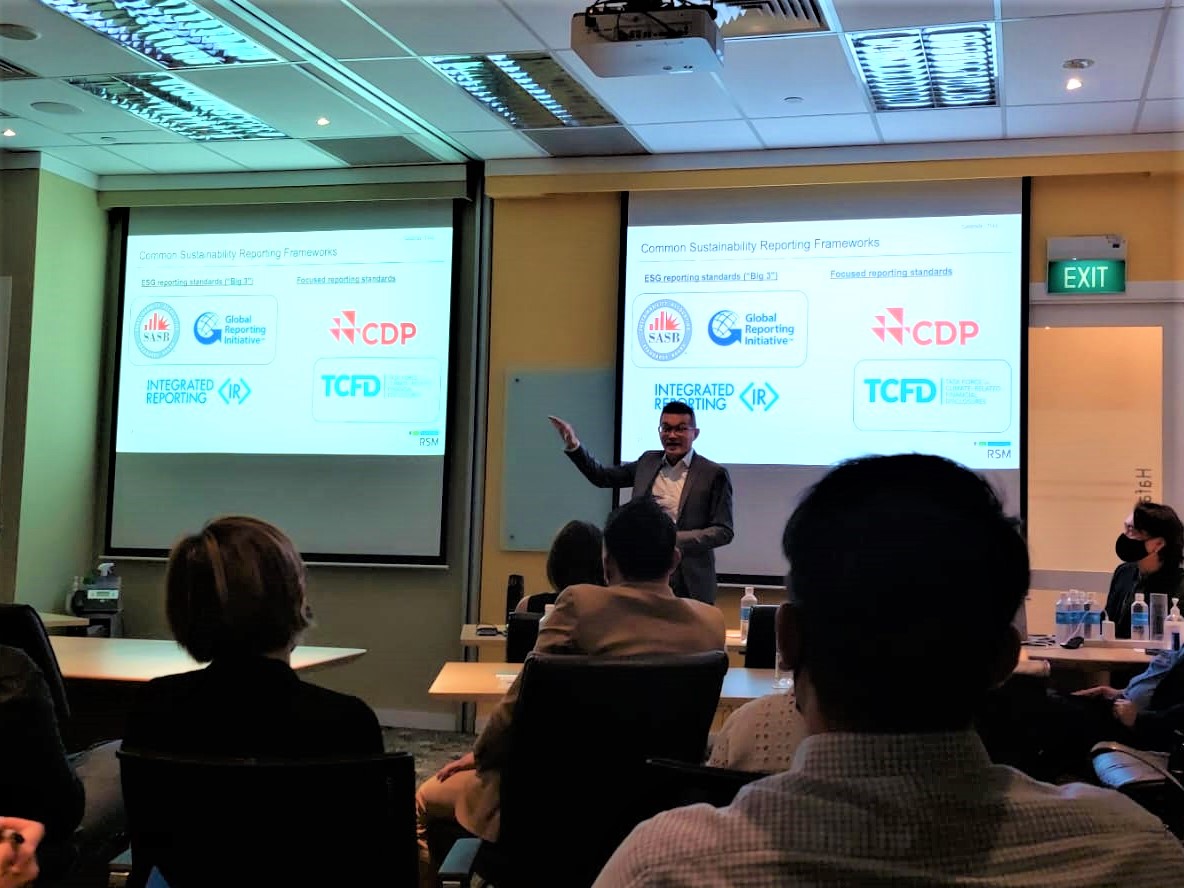On the 10th of June 2022, RSM and Greenbees jointly held “The Green Seminar” to provide holistic insights on building a sustainable business. We had the honour of inviting Dennis Lee (Partner and ESG Specialist, RSM Singapore) and Lim Shir Li (Senior Consultant, RSM Singapore) to share more on Environmental, Social and Governance (ESG) Reporting and give us a better understanding about green audit.
Over the years, many initiatives have been rolled out to reduce carbon emissions. However, as the number of human-induced activities that negatively impact our climate continue to increase, rapid development of sustainable options have to take place. There has been a shift from actions intended to solely protect the environment, to actions that attempt to increase sustainable development. One such event is the 2021 United Nations Climate Change Conference, more commonly referred to as COP26, which enforces the need to change the way we live and do business to meet sustainability targets.
As businesses move towards becoming more sustainable, green auditing plays an important role in helping organizations achieve trust and reliability, and preventing green fraud, grant fraud and fraudulent ESG credentials.
The 3Rs movement on reducing, reusing and recycling started out in Singapore in 2018 through Zero Waste SG which is a non-governmental organization. Zero Waste SG focuses on engaging the public and corporates on the 3Rs in areas of food waste, plastic disposal, household recycling and organizational waste.
RSM’s Partner & ESG Specialist, Dennis Lee, speaking at “The Green Seminar”.
Why is Environmental, Social and Governance (ESG) important?
More focus is being paid to ESG as it is indicative of an organization’s commitment to sustainability.
In today’s workplace, sustainability is no longer optional for companies to practise, rather it is a necessity. This is because an increasing number of employees around the world expect sustainable initiatives from their employers. The current generation of millennials are more inclined to work in organizations whose core values are aligned with their own. Hence, companies with a good ESG score will have a better chance of attracting talent, with longer retention.
There is also an increased focus by governments and regulators to ensure that sustainability is a key consideration for companies. This has resulted in a strong demand for companies to furnish information that addresses ESG related concerns. Likewise, consumers are also becoming increasingly in favour of sustainable business options. Failure to comply with regulatory requirements may result in the 3Cs which are: No Cash Flow, No Credibility, and No Customers for businesses.
In the Singapore context, keeping up with ESG developments helps the nation remain competitive as an Asian Financial Hub. Organizations that are unable to keep up with the ESG developments might lose out on economic opportunities.
As of today, the three main ESG reporting standards are the Sustainability Accounting Standards Board (SASB), Global Reporting Initiative (GRI), and Task Force Climate-Related Financial Disclosures (TCFD). To help Singapore companies keep up with new ESG developments, incentives have been put in place to encourage change and foster a culture of sustainability. One of them is the Singapore Green Plan 2030 which aims to transform Singapore into a greener and more sustainable city by 2030.


